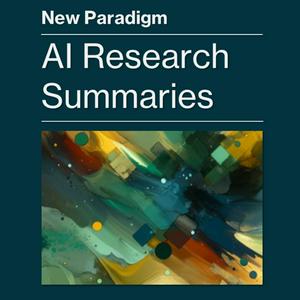A Summary of Stanford's "s1: Simple test-time scaling" AI Research Paper
This episode analyzes "s1: Simple test-time scaling," a research study conducted by Niklas Muennighoff, Zitong Yang, Weijia Shi, Xiang Lisa Li, Li Fei-Fei, Hannaneh Hajishirzi, Luke Zettlemoyer, Percy Liang, Emmanuel Candès, and Tatsunori Hashimoto from Stanford University, the University of Washington in Seattle, the Allen Institute for AI, and Contextual AI. The research investigates an innovative approach to enhancing language models by introducing test-time scaling, which reallocates computational resources during model usage rather than during the training phase. The authors propose a method called budget forcing, which sets a computational "thinking budget" for the model, allowing it to optimize reasoning processes dynamically based on task requirements.The study includes the development of the s1K dataset, comprising 1,000 carefully selected questions across 50 diverse domains, and the fine-tuning of the Qwen2.5-32B-Instruct model to create s1-32B. This new model demonstrated significant performance improvements, achieving higher scores on the American Invitational Mathematics Examination (AIME24) and outperforming OpenAI's o1-preview model by up to 27% on competitive math questions from the MATH500 dataset. Additionally, the research highlights the effectiveness of sequential scaling over parallel scaling in enhancing model reasoning abilities. Overall, the episode provides a comprehensive review of how test-time scaling and budget forcing offer a resource-efficient alternative to traditional training methods, promising advancements in the development of more capable and efficient language models.This podcast is created with the assistance of AI, the producers and editors take every effort to ensure each episode is of the highest quality and accuracy.For more information on content and research relating to this episode please see: https://arxiv.org/pdf/2501.19393
